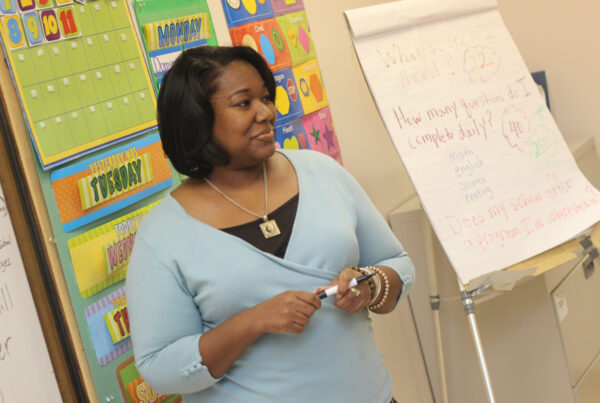The Seven Big Ideas: Pandemic Edition
In most of my keynotes and workshops, I usually share “The Seven Big Ideas of Family Engagement.” These ideas are not meant to be a comprehensive list, but rather highlight some of the bigger truths of engaging families in the learning lives of children.
The other day, I began to ponder these ideas in the context of COVID-19 and the significant challenges that educators face. I wondered if these ideas or “truths” as I often refer to them, hold up in this most unusual of unusual situations.
For each of the ideas, I’ve added pandemic commentary as a way to determining relevance of the idea to our situation. You are free to make your own determinations.
1
Families are the first and most influential teachers of their children. This statement is clear, concise and to the point and hopefully doesn’t need a great deal of explanation.
Pandemic Commentary: At the moment, families are the only “real live” teacher students have, so, yeah, this one is still pretty relevant.
2
Most schools are adept at engaging the already engaged: This has actually been a pet peeve of mine for quite some time. We are lured into a false sense of satisfaction when we see a lot of people engaged with something at school. More often than not, those that are engaged are the “already engaged” and their children are most likely not the ones who would benefit most from their family’s engagement.
Pandemic Commentary: I bet that teachers can already sense a pattern in family involvement and engagement in learning and I would also bet that it falls along “already engaged” lines just like it did when schools were open. If we don’t know the level of learning engagement of all families, we could be in for a rude awakening when all of this is over.
3
Family engagement is not about doing more, but doing what we already do, differently. Family engagement is not an add-on or a “nice to have” or a “if we have time.” Instead of adding more to teacher’s already overfilled plates, lets work on changing what we already do to incorporate families into an active role in learning. Not more, just different.
Pandemic Commentary: I suspect if tomorrow you told any teacher in the United States that we want them to do one more thing, they could potentially become lethal in their response. Designing learning that incorporates families and environmental context into the lesson is not doing more, it’s doing what we must do, only differently.
4
Family engagement is a process, not an event. Many validate the success of family engagement efforts by measuring whether or not increased participation in school events occurred. (Remember, events usually attract the already engaged). We know that to truly impact learning with families, there is in place a process that moves the organization down a continuum toward improved learning through family engagement.
Pandemic Commentary: There are no events because schools are closed. So, yes. This still rings true if we are having zoom math nights.
5
Relationships with families that are disengaged must lead to increased family efficacy. Engaging families for the sake of engagement or to monitor or comply with school requests usually doesn’t get us very far with those that are disengaged. When families see value, meaning and relevance to their engagement, there is an uptick in family involvement. But before any of that happens, we must have a healthy relationship with that family and at the root of that relationship is trust.
Pandemic Commentary: With all of the stress, trauma and emotion swirling around homes as a result of COVID-19, any activities, directives, suggestions, homework, videos or zoom chats absolutely have to be meaningful to families. Otherwise, it won’t happen.
6
There is a direct research correlation between underserved students and disengaged families. These two ideas have ALWAYS been connected.
Pandemic Commentary: They’re still connected.
7
Without a process to build staff capacity to engage and promote family efficacy, the process cannot be sustained over time. Investing money, time and energy into teacher professional development that targets how to engage families that results in improved learning is a critical, yet often overlooked topic.
Pandemic Commentary: Is there any other professional development more important right now?




Some families have two working parents so there is little time to help older students to do homework
I always try to talk to my parents when they come and pick up there child from after school
Keeping families involved is the key to their child’s success. It lets them know that they are important too.